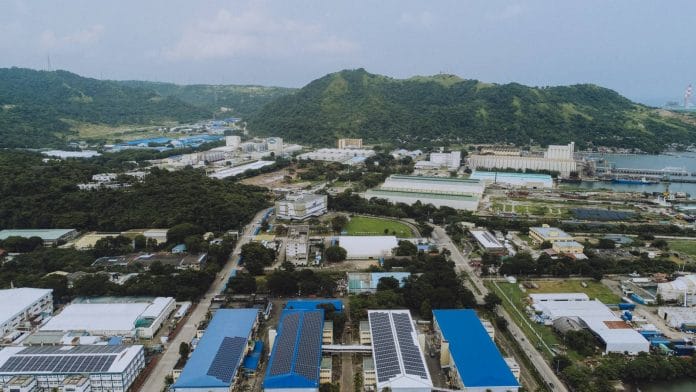The Authority of the Freeport Area of Bataan (FAB) could be the next go-to destination of global blockchain or so-called Web3 startup companies, especially with a supposed ongoing crackdown on the sector in the United States.
Chris Chung, a strategy and venture advisor of Genesis Block, said this during the recent FAB Technology and Innovation Summit that mainly drew Korean blockchain startup companies and investors.
He said the newly launched crackdown by the US Securities and Exchange Commission (SEC) against blockchain companies, which is now spilling over into other jurisdictions, could be a potential boon for the AFAB freeport zone.
The US-led crackdown against Web3 or blockchain technology-based companies was being dubbed as Operation Choke Point 2.0.
“No one talks about it because you don’t want to get in trouble with the authorities,” Chung said. However, he said that the crackdown is “a real thing.”
“The US is only 5 percent of the global population. However, it has almost 40 percent of the world’s GDP (gross domestic product). And 70 percent of the globe’s equity markets,” he added.
“So, what happens in the US, there are echo effects everywhere,” Chung said, noting that crackdown is being taken by the US into other jurisdictions.
But with the word spreading about the supposed crypto-friendly features of the Republic Act 11453, which expanded and strengthened the AFAB territory in Mariveles, Chung said the Philippines, particularly the AFAB freeport, could be a likely haven for these beleaguered Web 3 or blockchain tech based startup companies.
“But now, we got RA 11453. The foundations are being laid. Not only that, this is an English speaking culture with amazing demographics,” Chung said.
“The US, Europe, they’re getting old. Korean, Japan, they’re getting old… The demographics in the Philippines is very young. The GDP is 6 percent plus year over year. And with the youth behind it,” he added.
Signed into law on August 30, 2019 by then President Rodrigo Duterte, RA 11453 gave greater powers to the AFAB and laid the Offshore Blockchain and Financial Technology Solutions (OBFTS) Policy, which also included a provision for the creation of a Bataan Blockchain City inside the freeport.
In an interview with reporters, Chung said that the so-called Operation Choke Point 2.0 activities in the US was rife in the Web2 and VC (venture capital) fund sector.
“Right now, there are a lot of cryptos getting frozen via SEC action letters… Our clients are telling us [that] they can’t open bank accounts in the US, which you need for an operating business, that you need to pay your employees,” he said.
“The Philippines has a hundred million people, the demographics is very favorable unlike in the US, Korea, Japan. There is a very favorable demographics [here],” Chung added.
AFAB, he said, is going to get a lot of momentum, noting that RA 11453 is building a foundation of what he said was “regulatory clarity.”
“The Philippines itself is a very tech-forward culture. Very tech forward culture. There is the gaming culture, right? It’s very young. And it’s English speaking,” Chung said.
“There’s a ton of US companies. In my opinion, they would rather be here. You know, if everything was set up,” he added.


